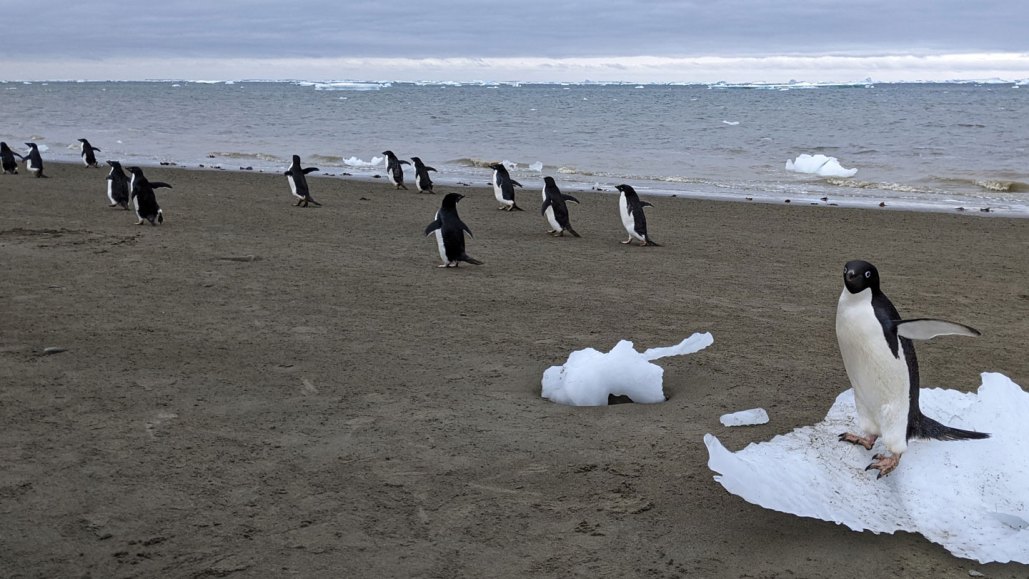
Climate
Penguin poop gives Antarctic cloud formation a boost
Penguin poop provides ammonia for cloud formation in coastal Antarctica, potentially helping to mitigate the impacts of climate change in the region.
Every print subscription comes with full digital access

Penguin poop provides ammonia for cloud formation in coastal Antarctica, potentially helping to mitigate the impacts of climate change in the region.
We summarize the week's scientific breakthroughs every Thursday.

Oddly shaped deposits of tree resin point to massive waves that struck northern Japan roughly 115 million years ago and swept a forest into the sea.

This assassin bug's ability to use a tool — bees’ resin — could shed light on how the ability evolved in other animals.

A study of weather on a mountain in Greece reveal that bioparticles in the sky may drive fluctuations in rainfall patterns more broadly.

Hundreds of millions of years before oxygen surged in the atmosphere 2.4 billion years ago, swaths of oxygen winked in and out of existence in the ocean.

A scientist who worked on the National Climate Assessment explains how stopping work on it may make us more vulnerable to extreme weather disasters.

Sunflower sea stars discovered taking refuge in fjords may offer clues to saving the critically endangered species from sea star wasting disease.

Introducing captive-bred axolotls to restored and artificial wetlands may be a promising option for the popular pet amphibian.

Water drops produce electricity when dripped through a small tube. That power might be harnessed as renewable energy in rainy places.

Scientists aboard a research vessel near Los Angeles collected ash, air and water samples as fire blazed on the hills before them in January.